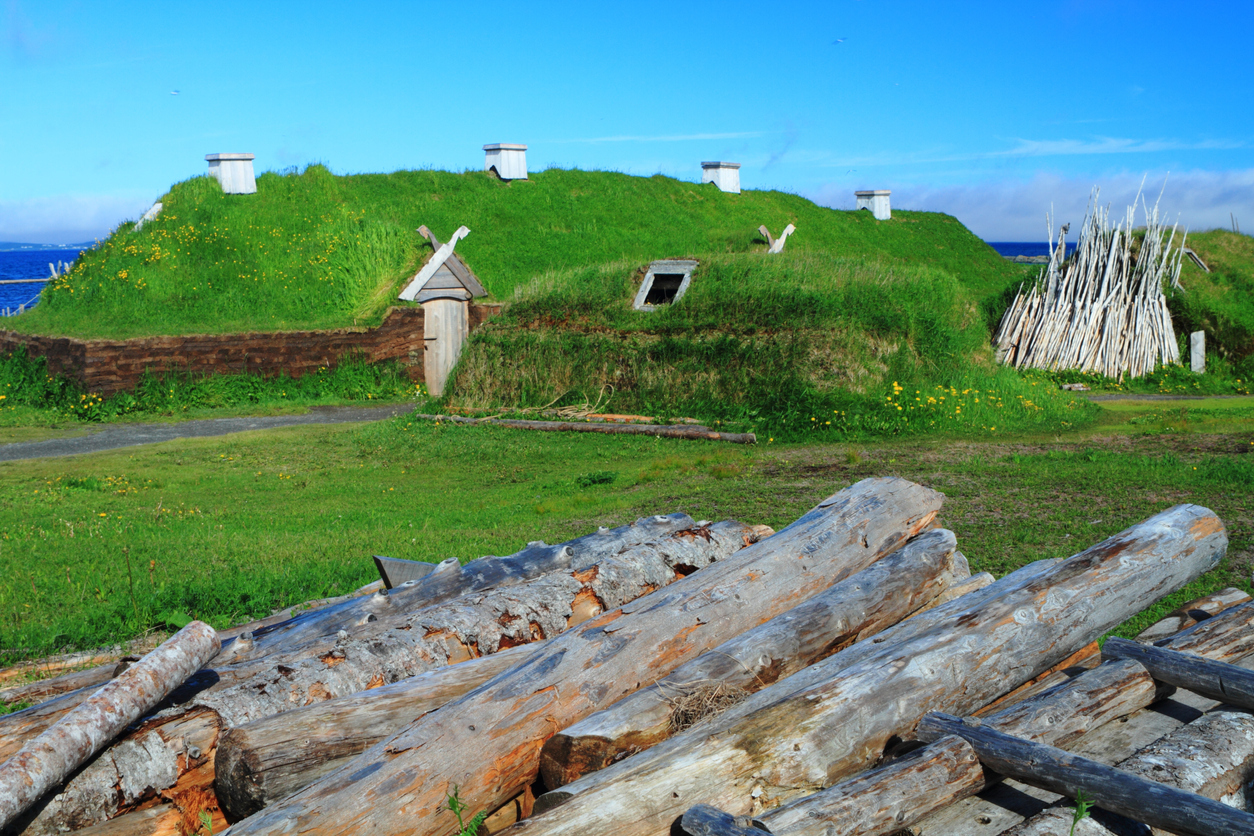Archaeologists used tree rings and astrophysics to prove Vikings were in Canada in 1021


A free daily email with the biggest news stories of the day – and the best features from TheWeek.com
You are now subscribed
Your newsletter sign-up was successful
Scientists and historians have long known that the Vikings beat Christopher Columbus to the Americas, and now they know by exactly how much: 471 years. A group of archaeologists, geoscientists, and at least one dendrochronologitst — a scientist who dates events and objects using tree rings — reported Wednesday in the journal Nature that they have pieced together definitive evidence that Vikings arrived in Newfoundland, Canada, in 1021, exactly 1,000 years ago.
A husband-and-wife team of archaeologists discovered the remnants of what they believed was a Norse settlement on the northern tip of Newfoundland in the 1960s. Scientists now believe this settlement, L'Anse aux Meadows, was built by Vikings who traveled to Canada from Greenland.
The team of Canadian and Dutch researchers pinpointed the elusive date of the settlement using evidence of an extremely rare solar storm found in three tree segments cut with axes or other metal instruments. Newfoundland's Indigenous people "didn't use metal tools" at that time, said Margot Kuitems, an archaeologist at the University of Groningen in the Netherlands and the study's lead author.
The Week
Escape your echo chamber. Get the facts behind the news, plus analysis from multiple perspectives.

Sign up for The Week's Free Newsletters
From our morning news briefing to a weekly Good News Newsletter, get the best of The Week delivered directly to your inbox.
From our morning news briefing to a weekly Good News Newsletter, get the best of The Week delivered directly to your inbox.
This is "the only known date for Europeans in the Americas before Columbus," Michael Dee, a study co-author from the University of Groningen, told USA Today, calling that date a huge turning point in the history of human migration. "Previously the date was based only on sagas," Kuitems told NBC News, "oral histories that were only written down in the 13th century, at least 200 years after the events they described took place."
The researchers knew that one of these rare solar storms — called Miyake events after their discoverer, Japanese cosmic ray physicist Fusa Miyake — took place in 992 or 993 A.D., and they found the telltale signs of radiocarbon 28 rings before the outer bark of those three pieces of wood, each from a different tree. With the date of that inner ring fixed, "all you need to do is count to when you get to the cutting edge," Dee said.
Dendrochronologitsts not involved in the research were persuaded by the findings. Until now, the dates for when L'Anse aux Meadows was settled were "guesstimates," Sturt Manning, an archeologist and director of the Cornell Tree Ring Laboratory, told The New York Times. "Here's hard, specific evidence that ties to one year."
A free daily email with the biggest news stories of the day – and the best features from TheWeek.com
Peter has worked as a news and culture writer and editor at The Week since the site's launch in 2008. He covers politics, world affairs, religion and cultural currents. His journalism career began as a copy editor at a financial newswire and has included editorial positions at The New York Times Magazine, Facts on File, and Oregon State University.
-
 The ‘ravenous’ demand for Cornish minerals
The ‘ravenous’ demand for Cornish mineralsUnder the Radar Growing need for critical minerals to power tech has intensified ‘appetite’ for lithium, which could be a ‘huge boon’ for local economy
-
 Why are election experts taking Trump’s midterm threats seriously?
Why are election experts taking Trump’s midterm threats seriously?IN THE SPOTLIGHT As the president muses about polling place deployments and a centralized electoral system aimed at one-party control, lawmakers are taking this administration at its word
-
 ‘Restaurateurs have become millionaires’
‘Restaurateurs have become millionaires’Instant Opinion Opinion, comment and editorials of the day
-
 5 recent breakthroughs in biology
5 recent breakthroughs in biologyIn depth From ancient bacteria, to modern cures, to future research
-
 Blue Origin launches Mars probes in NASA debut
Blue Origin launches Mars probes in NASA debutSpeed Read The New Glenn rocket is carrying small twin spacecraft toward Mars as part of NASA’s Escapade mission
-
 Dinosaurs were thriving before asteroid, study finds
Dinosaurs were thriving before asteroid, study findsSpeed Read The dinosaurs would not have gone extinct if not for the asteroid
-
 SpaceX breaks Starship losing streak in 10th test
SpaceX breaks Starship losing streak in 10th testspeed read The Starship rocket's test flight was largely successful, deploying eight dummy satellites during its hour in space
-
 Rabbits with 'horns' sighted across Colorado
Rabbits with 'horns' sighted across Coloradospeed read These creatures are infected with the 'mostly harmless' Shope papilloma virus
-
 Lithium shows promise in Alzheimer's study
Lithium shows promise in Alzheimer's studySpeed Read Potential new treatments could use small amounts of the common metal
-
 Scientists discover cause of massive sea star die-off
Scientists discover cause of massive sea star die-offSpeed Read A bacteria related to cholera has been found responsible for the deaths of more than 5 billion sea stars
-
 'Thriving' ecosystem found 30,000 feet undersea
'Thriving' ecosystem found 30,000 feet underseaSpeed Read Researchers discovered communities of creatures living in frigid, pitch-black waters under high pressure
